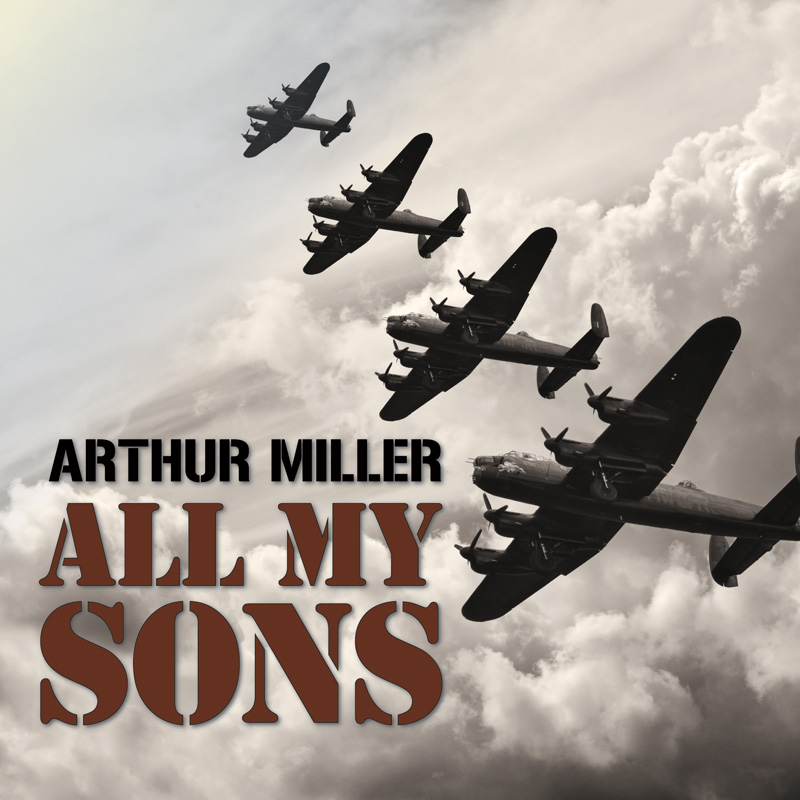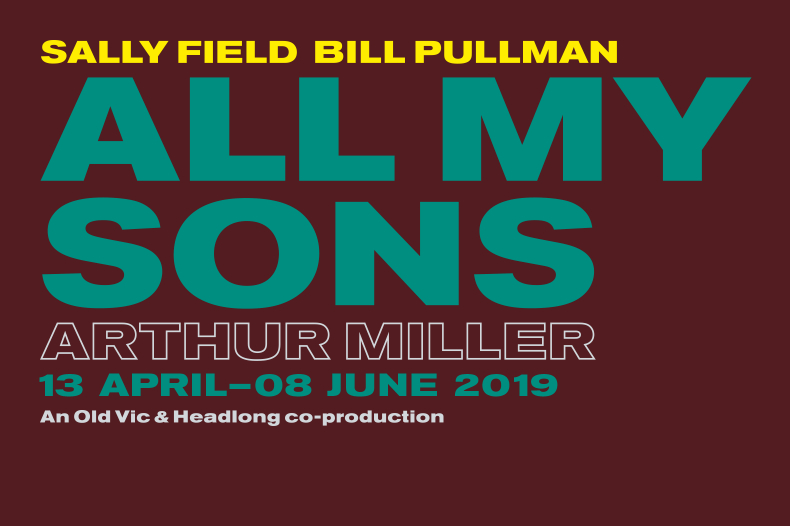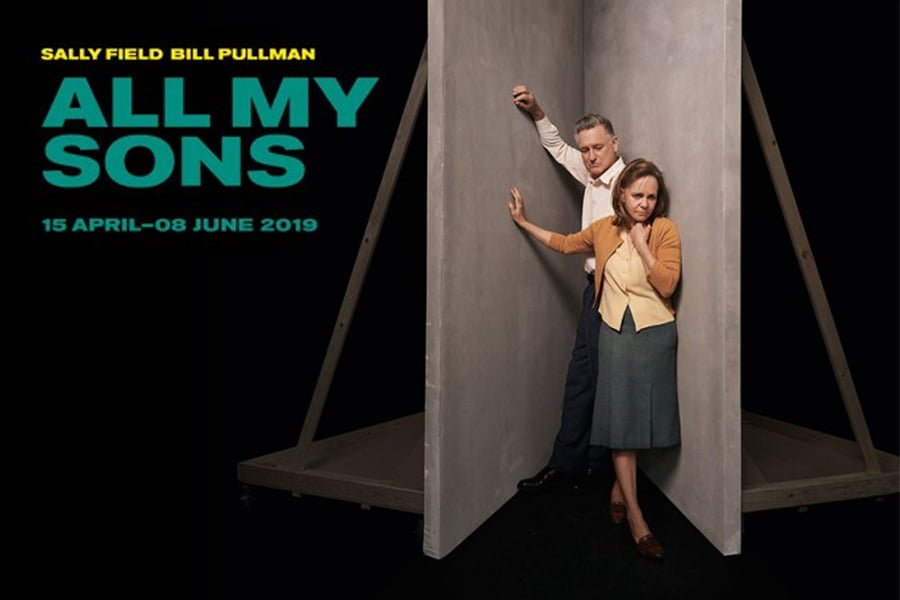Ben Gliniecki reviews Arthur Miller’s dramatic play about the corrosive effect of the profit system on social ties and family bonds.
Arthur Miller’s 1947 play All My Sons is currently showing at the Old Vic theatre in London. The production systematically shreds the illusion of the ‘American Dream’ and lays bare the realities of life under capitalism.
Partly as a result of this script, Miller was interrogated by the House Un-American Activities Committee during the McCarthyite pursuit of suspected communist sympathisers in the USA in the 1950s. The play’s first director, Elia Kazan, had previously been a member of the Communist Party (although he later capitulated to the Un-American Activities Committee).
The director of the current production, Jeremy Herrin, has kept to Miller’s intention of exposing the hypocrisy, greed, and tragedy of capitalism. Herrin himself has played a key role in fighting for better terms and conditions at work for directors through the trade union organisation Stage Directors UK.
Frictions
The play is set over the course of one day in August 1946, in the Midwestern USA. The backdrop is a typically quaint house with a white picket fence. The Keller family who live there appear respectable, likeable, and happy.
But fractures are present from the beginning. Central to the opening act is a snapped tree, a memorial for a son missing in action during the war, blown over by the wind. As the dialogue unfolds, the fractures deepen and multiply.
The stifling atmosphere of the traditional family creates friction and resentment. War profiteering, murder, and betrayal that took place three years prior are revealed. The failures of the courts and the impotence of the rule of law are exposed. The helpless contradiction between human life and the capitalist system is chillingly depicted. Finally, the American Dream is shattered by a single gunshot.
The play is based on dialogue, not action. Miller gradually uncovers events that have already taken place, first for the audience, and then for the characters themselves. The slow and steady revelations are poison seeping into the initially unpolluted characters, the family, and the society in which they live.
War is terribly profitable
 The backbone of the plot is a conspiracy, perpetrated three years prior to the events depicted. Defective parts for US Air Force aeroplane engines were produced and shipped during the war. Their use resulted in the death of 21 pilots when the parts failed. Joe Keller, the factory owner, dodged responsibility, placing all the blame on his partner Steve Deever, who was imprisoned.
The backbone of the plot is a conspiracy, perpetrated three years prior to the events depicted. Defective parts for US Air Force aeroplane engines were produced and shipped during the war. Their use resulted in the death of 21 pilots when the parts failed. Joe Keller, the factory owner, dodged responsibility, placing all the blame on his partner Steve Deever, who was imprisoned.
Joe asserts his innocence, but it emerges during the course of the play that Joe was just as guilty, if not more, for the deaths. The audience begins to understand that Joe has covered his tracks with lies and manipulation. When Joe’s son discovers the truth and challenges him, Joe responds:
“What could I do? I’m in business, a man is in business. A hundred and twenty cracked, you’re out of business. You got a process, the process don’t work, you’re out of business.”
He goes on:
“What should I do? Jail? You want me to go to jail? If you want me to go, say so! Is that where I belong? Then tell me so! What’s the matter, why can’t you tell me? You say everything else to me, say that! I’ll tell you why you can’t say it. Because you know I don’t below there. Because you know! Who worked for nothin’ in that war? When they ship a gun or a truck outta Detroit before they got their price? Is that clean? It’s dollars and cents, nickels and dimes, war and peace. It’s nickels and dimes. What’s clean? Half the goddam country is gotta go if I go! That’s why you can’t tell me.”
Trading lives for profits is what war is all about. Lenin once replied to the wail of a pacifist that “war is terrible” with the quip: “yes, terribly profitable”. Miller brings this to the fore, and adds layers of intensity to this horror of capitalism through the relationships between the characters.
By adding personal dimensions to the capitalist practice of war profiteering, Miller creates an overwhelming revulsion for a profit-driven economy that puts money above human life. He strips all the alleged honour and glory out of war in the most brutal fashion, exposing the reality of military conflict as a matter of cold financial gain.
The suffocating family
In justifying what he did, Joe says he did it for his family. This alone is enough to taint the utopia of bourgeois family life. But further cracks appear throughout the play.
The characters wrestle with whether there are things bigger than family. Joe’s son, for example, has to decide whether to report his father once he finds out the truth.
And the play explores the extent to which lies and self-deception are required to hold a family together, and how such things sow the seeds for the family’s eventual destruction. Joe’s wife, for example, always knew that her husband was guilty but deliberately closed her eyes to it.
Four couples are depicted in the play, each with varying degrees of unhappiness and regret caused by their marriage (or engagement). For example, one character’s domestic bliss and motherhood is tinged with regret over a lost love. Another is tied down to a job he hates in order to provide for his family.
Miller’s depiction of the suffocating and self-destructive role of the traditional family matches his withering attack on the capitalist economic system that it supports. In this play, as in reality, the two things stand and fall together.
Fighting blind forces
 The miscarriage of justice revealed in the play shakes the faith of the characters and the audience in the rule of law. Joe himself repeatedly states that the law isn’t interested in justice but in scapegoating.
The miscarriage of justice revealed in the play shakes the faith of the characters and the audience in the rule of law. Joe himself repeatedly states that the law isn’t interested in justice but in scapegoating.
This contributes to the sense of helplessness of the individual characters in the play. They are struggling against blind forces. Joe is forced to produce dangerous parts in order to keep his business. Joe’s son is forced not to report his father due to the emotional weight of the family.
The overwhelming feeling is of a gradual loss of control. The play takes us from the quiet and comfortable to the chaotic and free-falling. Here Miller portrays most people’s experience of life under capitalism.
We’re all searching for calm and stability, but forces beyond our control push us down dangerous and distressing paths. Casting blame for this on individuals doesn’t help – in fact it makes things worse. We are left feeling empty and despairing, with no clear way out. This is the end result of the profit system and the bourgeois family. It is an indictment of capitalism.
Crumbling of the American Dream
In this play Miller takes the archetype of the American Dream – a happy family, a good business, and a white picket fence – and blows it to smithereens. Over the course of the play, the dream becomes a nightmare.
This is the nightmare of capitalism. Miller’s characters despair because they can’t see a way out. But for us, there is a way out: the total transformation of society along socialist lines, and an economy run for need instead of profit.
The House Un-American Activities Committee understood that, and feared it. That’s why they interrogated Miller. Socialists watching this play at the Old Vic today must also understand this, and embrace it. The only future free from despair is a socialist one. It’s our job to make that a reality.
All My Sons is currently showing at the Old Vic in London until 8th June 2019.






